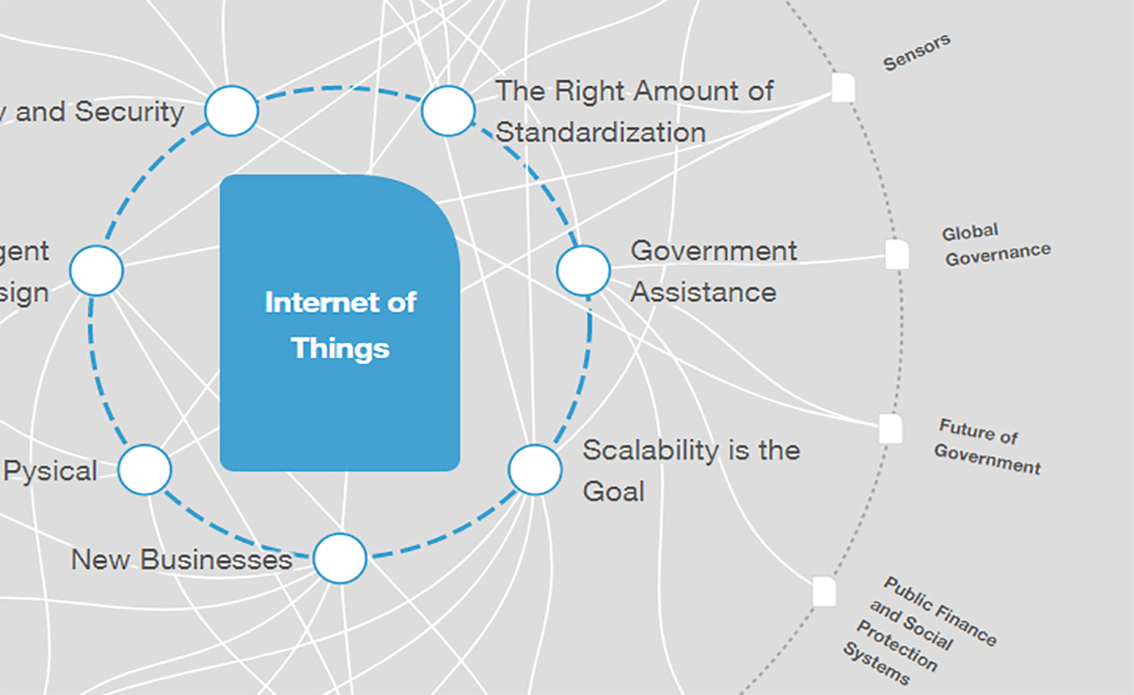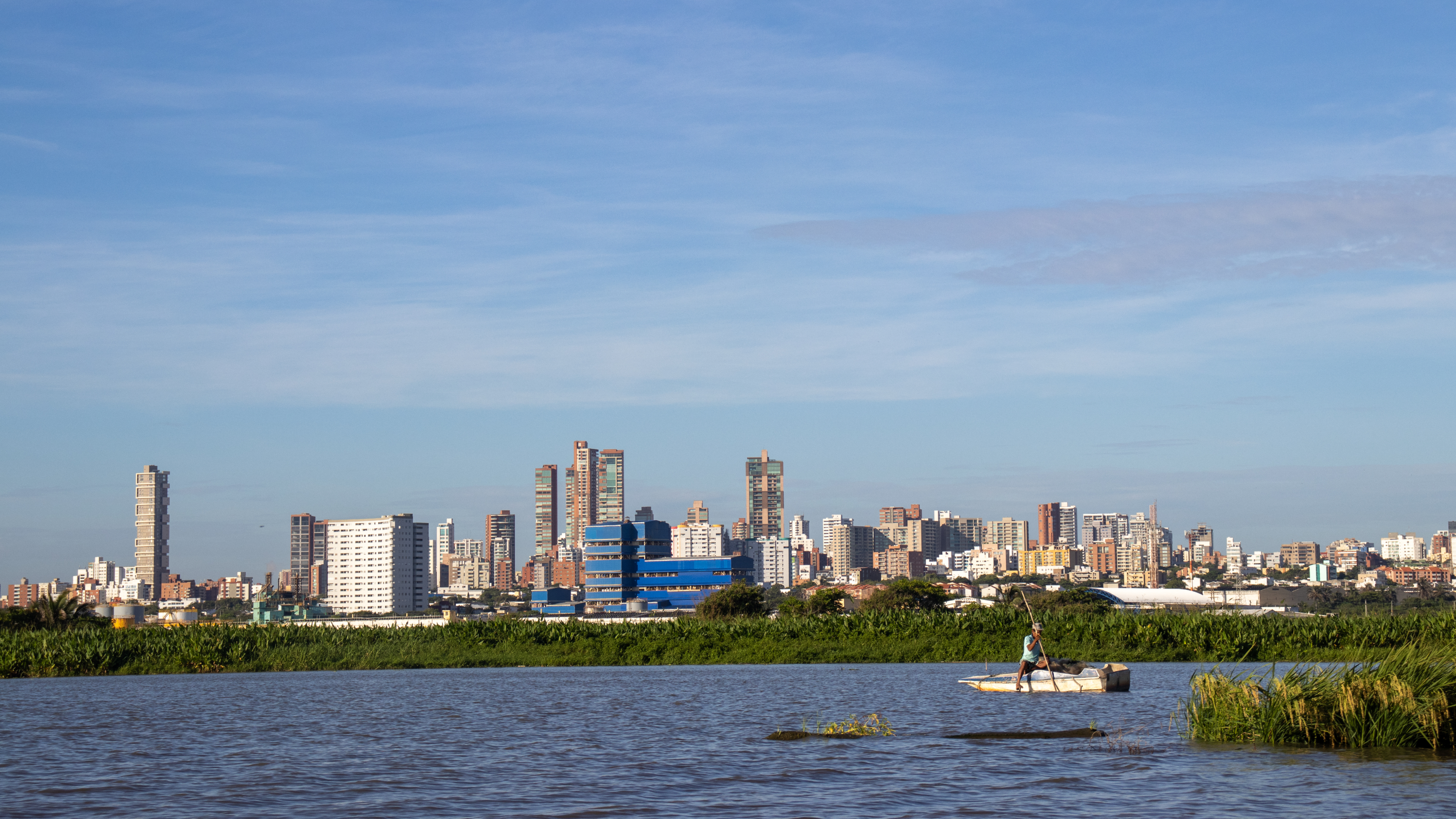Here's how the global community is doing on technology governance

A new insight report found some improvements around cybersecurity best practices and environmental, social and governance (ESG) issues. Image: Getty Images
Listen to the article
- A new insight report provides a snapshot of technology governance initiatives around the world.
- It shows that some progress has been made on cybersecurity as well as on environmental, social and governance issues.
- More work is needed to make technology truly secure, and to make sure it benefits society and the planet.
Global use of internet-connected devices and systems is accelerating and evolving. In 2022, an estimated 6.5 billion people had a smartphone, and this is predicted to grow to 7.6 billion by 2027. The safe and responsible governance of Internet of Things (IoT) and related technologies has struggled to keep pace.
In June 2022, the World Economic Forum's Council on the Connected World published the Global Action and Recent Progress Insight Report, which provides a snapshot of notable technology governance initiatives around the world. The report found some improvements around cybersecurity best practices and environmental, social and governance (ESG) issues. Further work is needed, however, to truly ensure connected devices benefit businesses, people and the planet.
Progress made on cybersecurity best practice
Both public and private sectors are focusing on improving the security of IoT products, particularly through the development of policies and programs for consumer devices. In Singapore, for example, the implementation of the Cybersecurity Labelling Scheme (CLS) for consumer devices has demonstrated value in the form of increased sales and enquiries. This four-tier voluntary program with a self-declaration and conformity component allows consumers to make informed decisions by understanding the underlying security measures of products. Companies such as Google, Nokia, Aerogaz and ASUS have adopted CLS already for many connected products.
Finland and Singapore have mutually recognized elements of their program so that manufacturers have a single application process for label usage in both countries – as demonstrated by Signify with its smart lighting solution. In the United States, the IoT Cybersecurity Improvement Act of 2020 requires federal agencies to strengthen the security of the IoT devices they own and control.
How is the Forum tackling global cybersecurity challenges?
World-leading hackers focusing on responsible security practices for smart homes, industrial IoT and medical devices convened with consumer advocates, academia and industry groups between 2021 and 2022 to build a consensus, representing more than 400 organizations globally, for manufacturers to adopt five minimum security provisions. Some signatories include Microsoft, Qualcomm, NTT, Signify and Check Point Software Technologies.
These efforts mark significant steps in technology governance. However, more is necessary to establish a secure connected future. Cybercrimes are likely to become more complex and can drastically impact individuals and businesses. One study showed that 54% of IT professionals believe that cyberattacks are too advanced for their teams to handle.
The financial impact of ransomware alone is substantial, with the average recovery cost of mid-size companies being $1.85 million in 2021. Making ransom payments does not help, as only 8% of businesses regain all their data and 29% recover no more than half.

We need to focus on taking a security by design and a lifecycle approach to make connected devices continuously secure. The power to improve international cybersecurity standards lies with governments, the private sector, standard bodies and other stakeholders. All parties need to align their efforts to encourage the adoption of best practice, minimize cross border hurdles, and reduce fragmentation across the system.
Increased focus on environment, society and governance
Connected technologies can play an important role in mitigating climate change and other environmental issues. New artificial intelligence and IoT technologies are predicted to underpin energy savings equivalent to 58% of the ICT industry’s total power usage. About 73% of adopters believe IoT implementation is necessary to achieve sustainability goals.
In 2020, global sustainable investment reached $35.3 trillion, with significant growth observed in Canada, the United States, Japan and Australasia, while Europe showed a decline due to changes in measurement methodologies. Strategies related to ESG integration grew by 143%, and sustainability-themed investing by 605% across these countries. The latter includes investments in green buildings and agriculture both of which can be enabled by ‘smart’ technologies.
The private sector is increasing its focus on ESG issues. As many as 394 companies appointed Chief Sustainability Officers (CSOs) between 2020 and 2021, a major increase compared to the 414 appointed over the previous eight years. A significant 50% of CSOs, nonetheless, hold limited influence due to having minimum access to corporate boards and overlapping roles related to corporate social responsibility and health.

While investments in ESG have risen, we don't know yet to what extent IoT and related technologies are strategically governed and positioned to benefit the planet. There is also a real danger of "greenwashing", especially when environmental benefits become an unintended result of technology adoption rather than a primarily driver of investment. ESG-based investments present an opportunity to ensure funds are allocated to scaling technological solutions that have demonstrated positive impact in mitigating climate challenges.
The international community is making good progress in many areas of technology governance, but more action is still needed urgently to maximize technologies ability to benefit society. This requires taking a systems approach to weigh the costs and benefits of technology innovation and adoption.
Don't miss any update on this topic
Create a free account and access your personalized content collection with our latest publications and analyses.
License and Republishing
World Economic Forum articles may be republished in accordance with the Creative Commons Attribution-NonCommercial-NoDerivatives 4.0 International Public License, and in accordance with our Terms of Use.
The views expressed in this article are those of the author alone and not the World Economic Forum.
Stay up to date:
Internet of Things
Related topics:
Forum Stories newsletter
Bringing you weekly curated insights and analysis on the global issues that matter.








